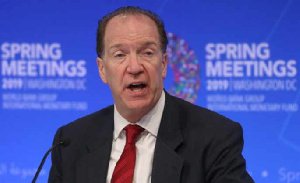The World Bank has said that the amount spent on subsidies will benefit only rich households and reduce government spending on poor Nigerians.
This remark was contained in a statement on the bank’s website announcing the launch of the new Nigeria Public Finance Review report.
According to the bank, Nigeria’s resources had been consumed by inefficient and regressive subsidiaries on petrol, electricity, and foreign exchange.
It added that the subsidies were far more than what was spent on education, health, and social protection in 2021.
The statement read, “For years, a large share of Nigeria’s resources have financed inefficient and regressive subsidies for petrol, electricity, and foreign exchange. Not all these subsidies are accounted for in the budget, which makes them difficult to track and scrutinize.
“However, available data suggest that these subsidies, which accounted for more than the amount spent on education, health, and social protection in 2021, benefit primarily wealthy households. They also distort incentives, discourage investment, and crowd-out spending on pro-poor programs, thereby hindering progress in Nigeria’s social development.”
The World Bank Group President, David Malpass, was quoted as saying, “Nigeria’s government urgently needs to strengthen fiscal management, create a unified, stable market-based exchange rate, phase out its costly, regressive fuel subsidy and rationalize preferential trade restrictions and tax exemptions. These would lay the groundwork for the increases in public revenues and spending needed to improve development outcomes.
“Decisive moves would significantly improve the business enabling environment in Nigeria, attract foreign direct investment, and reduce inflation. The World Bank is ready to increase support to Nigeria as it designs and implements these critical reforms.”
![]()










